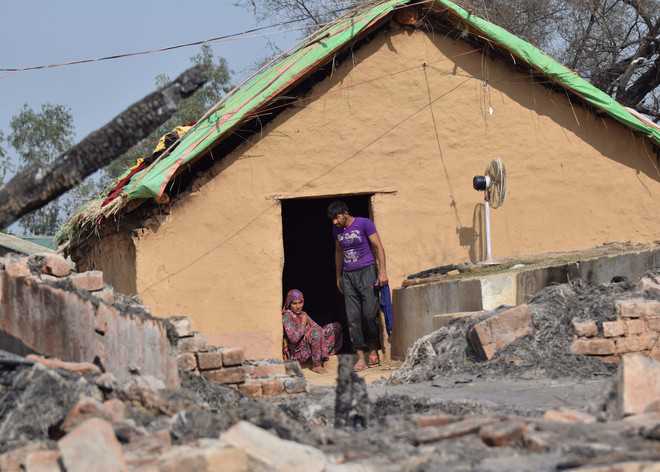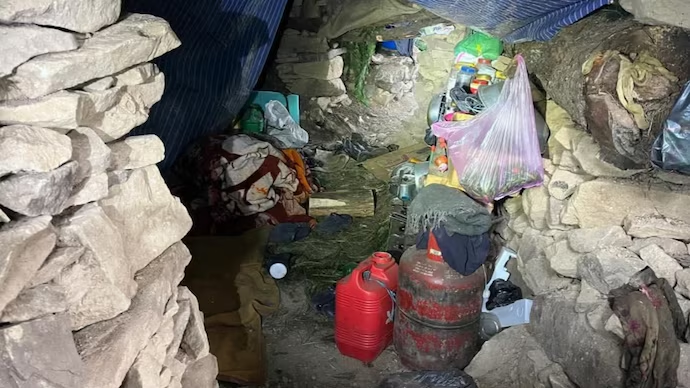Encroachments by community members traced to vote bank politics
 The onus of illegal encroachments on the state land, including forests, by nomadic Gujjars lies with the successive governments which exploited them for their vote bank.
The onus of illegal encroachments on the state land, including forests, by nomadic Gujjars lies with the successive governments which exploited them for their vote bank.
Insensitivity on the part of the governments can be gauged from the fact that Central laws available to nomadic tribes in other parts of the country are not implemented in J&K, leading to illegal encroachments by Gujjars at the behest of political parties.
In the backdrop of the Sarore incident in which a youth, Yaqoob Mohammed (24), father of two minor children, was killed in an alleged police firing during an eviction drive on February 22, we took a look into the problem faced by Gujjars.
According to the 2011 Census, there are 12 lakh Gujjars in the state, forming 11 per cent of the total population of the state. Contradicting the figures, Gujjars claim that approximately 6 lakh of them were not taken into account as they were in the upper reaches with their livestock when the Census was taken.
Since 1947, political parties have done nothing much to ameliorate the socio-economic condition of Gujjars. On February 25, Governor NN Vohra directed the government to make a draft plan to rehabilitate Gujjars in a holistic and scientific manner.
“Of the 87 Assembly constituencies, Gujjars have a sizeable vote in 70 constituencies. In at least 20 segments, they play a major role in propelling the prospects of political parties. Ironically, the community has been used as a tool,” says Gujjar scholar Javaid Rahi.
In 1976, then Prime Minister Indira Gandhi had sanctioned a one-time Budget of Rs 14 crore for their settlement. Consequently, Gujjar Nagar was set up.
Rahi said 6 lakh semi-nomadic Gujjars were illegally settled on state land by successive governments close to highways, cities and towns.
He traces the root of the problem to the absence of a law that could have ensured their dignified resettlement.
On April 19, 1991, the Union Ministry for Tribal Affairs granted the Scheduled Tribe status to the Gujjars, Bakerwals, Gaddis and Sippis.
“While the ST status was extended to J&K, but Central laws meant to empower the tribals were not extended due to Article 370. As of today, Gujjars are entitled to reservation in government jobs and admissions to professional courses but no Central law for tribes has been extended to J&K,” says Rahi.
For instance, political reservation for tribals, Forest Rights Act 2006 and the SC/ST Atrocities’ Act have not been extended to J&K.
After the Supreme Court banned habitation on forest land, the Centre had enacted the Forest Rights Act 2006.
“When there are no acts to protect and empower tribals, how can the Gujjar community be rehabilitated. Forests and water bodies are indispensable for them because they have to rear their livestock,” he added.
“While Central laws for tribals are not applicable to J&K, the land mafia uses Gujjars as proxies to encroach upon state land, including forest areas near cities, towns, tourist resorts and along highways with the active help of local leaders of the tribe,” says a Gujjar leader on condition of anonymity.
“Fully aware of the illegality of the possession of state land, these local leaders encourage Gujjar families to sell the land at throwaway prices to the land mafia and shift to other places,” he said.
Around 50,000 Gujjars families and Bakerwals need to be rehabilitated, he added.
As per official data, there are 23,002 land encroachers in the Jammu region and 15,408 in Kashmir division. Over 13,000 hectares of forest land has been encroached upon by mafia by enjoying the patronage of politicians, bureaucrats and top police officers.




